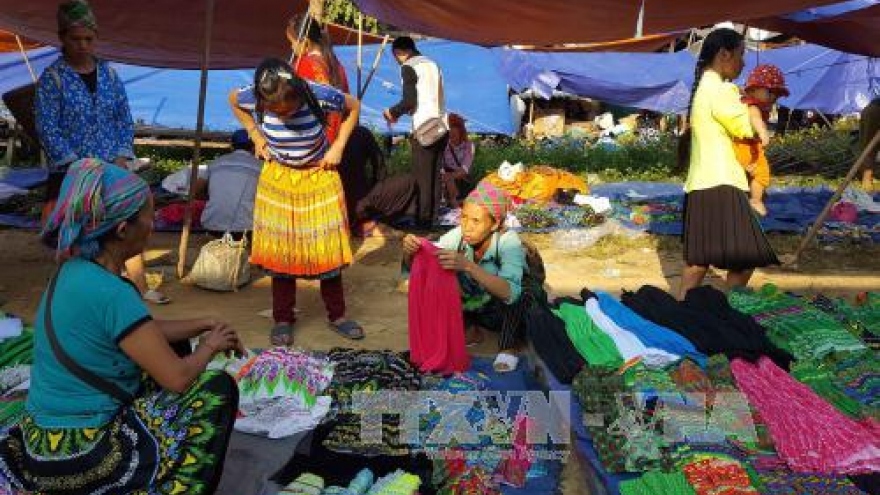Catching a husband and other marriage customs of the K’ho
VOV.VN - The K’ho are matriarchal and their take the active role in marriage. Although many of their customs and habits have changed towards modern society, they have maintained one age-old custom: “catching a husband.”
 |
One aspect of the K’ho’s matriarchal culture is that the bride and her family decide the marriage.
If the girl likes a man in her village or in other village, she tells her parents, who then invite a matchmaker to deliver a marriage proposal to the man’s family.
If the proposal is accepted, the girl’s family will suggest a “husband catching” day.
If the man isn’t interested, he will try indirect ways to refuse, such as challenging the girl’s family to bring many offerings so that she will be discouraged.
As the man is the main worker in a family, a skilled, strong man is worth many offerings. In the past the offerings included chickens, wine, a buffalo, and sets of gongs.
Now a man’s family still asks for marriage offerings but the items are simpler than in the past.
K’Nam said “In the past a girl with a big dowry could get married. If not, she would be left on the shelf. It’s not like that anymore. Now the man’s family will ask for offerings in cash or gold. A skilled, strong man with a stable job will ask for about US$2,400. The average rate is US$1,400.”
When the girl’s family delivers wedding presents, the man’s family places them on the altar to notify the ancestors of the marriage.
After the wedding ceremony, the bride’s family sends several relatives and friends to accompany the groom to the bride’s house.
The village patriarch performs a ritual in front of the ancestral altar and asks the God Emperor to bless the couple with happiness.
The village patriarch also lectures the newly weds about faithfulness and morality.
The ceremony is followed by a party at which the guests can sing and dance. The groom stays with the bride’s family.
If the bride’s family has not given enough offerings, the groom returns to his house until they receive everything they asked for.
If the groom’s family has difficulties, the bride stays with the groom’s family for a certain period. Their children bear the mother’s family name.
K’jan, a K’ho man, says some cumbersome wedding procedures have been eliminated.
“The K’ho have had contact with other ethnic groups and some of our customs have changed. We still uphold the rule that the bride’s family brings offerings to the groom’s family. Depending on the situation the families might accept a marriage without sufficient offerings.
Now we have adopted a more open view of marriage, but still maintain traditional wedding rituals.”
The K’ho respect faithfulness. Extramarital and incestuous relations and divorce without a valid reason are denounced and discussed by the community.
The people involved will pay a fine of one buffalo or several jars of alcohol or be discarded from the village.


